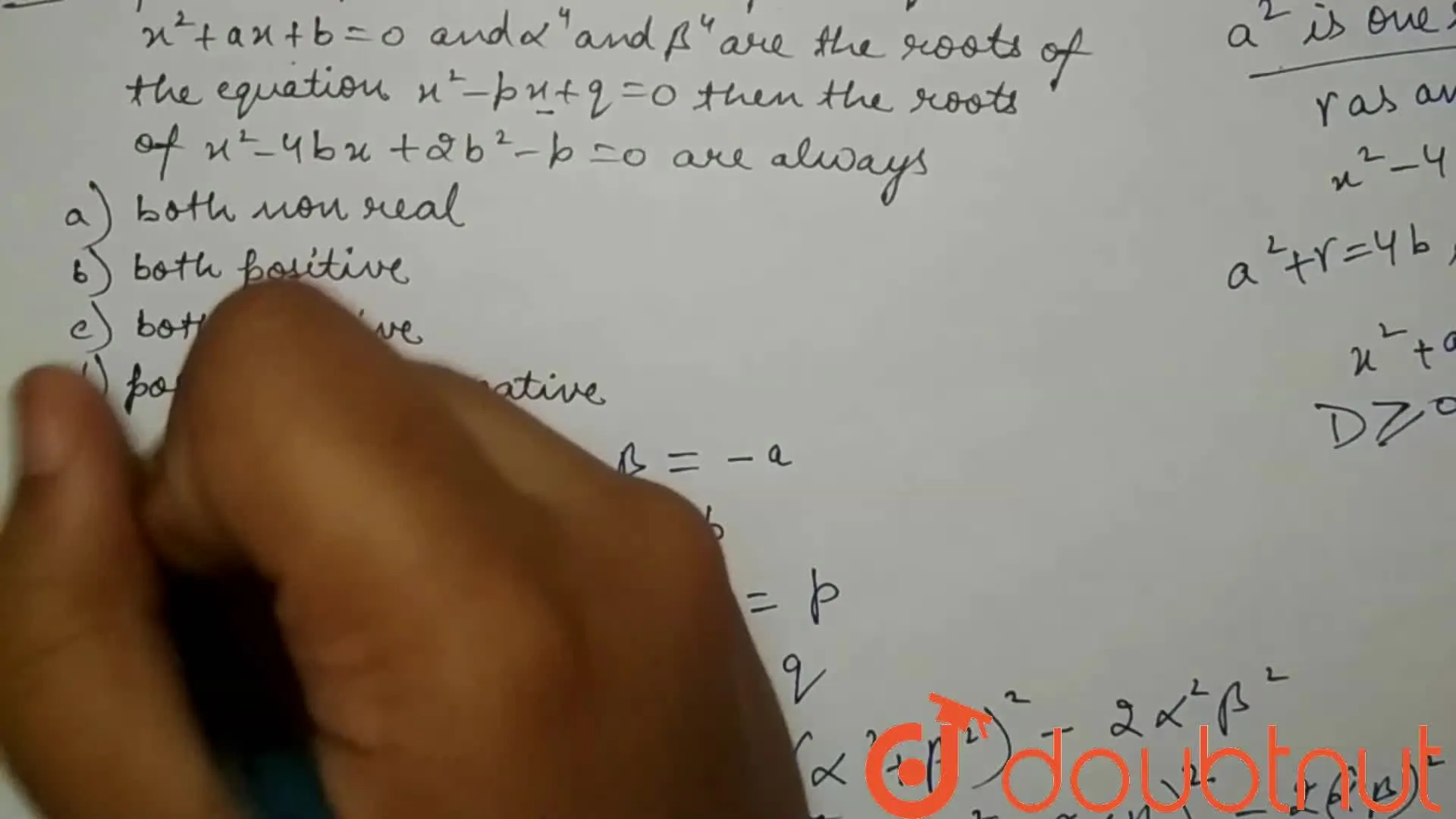If and are the roots of the equation and and are the roots of the equation then the roots of are always
both non-real
both positive
both negative
positive and negative
The correct Answer is:D
We have, .
Now,
is a root of the equation
Let be the other root of
Since are real roots of . Therefore,
Disc
Let D be the discriminant of . Then,
Hence, the roots of the given equation are real and are of opposite signs.
Related Playlists
- BOOK - OBJECTIVE RD SHARMA ENGLISHCHAPTER - QUADRATIC EXPRESSIONS AND EQUATIONS EXERCISE - Section II - Assertion Reason Type22videos
QUADRATIC EXPRESSIONS AND EQUATIONS
- BOOK - OBJECTIVE RD SHARMA ENGLISHCHAPTER - QUADRATIC EXPRESSIONS AND EQUATIONS EXERCISE - Exercise138videos
QUADRATIC EXPRESSIONS AND EQUATIONS
- BOOK - OBJECTIVE RD SHARMA ENGLISHCHAPTER - QUADRATIC EXPRESSIONS AND EQUATIONS EXERCISE - Chapter Test50videos
QUADRATIC EXPRESSIONS AND EQUATIONS
- BOOK - OBJECTIVE RD SHARMA ENGLISHCHAPTER - PROBABILITY EXERCISE - Chapter Test45videos
PROBABILITY
- BOOK - OBJECTIVE RD SHARMA ENGLISHCHAPTER - SEQUENCES AND SERIESEXERCISE - Chapter Test59videos
SEQUENCES AND SERIES
Similar Questions
If tanαtanβ are the roots of the equation x2+px+q=0(p≠0) then
View SolutionIf α,β are the roots of the equation ax2+2bx+c=0andα+h,β+h are the roots of the equation Ax2+2Bx+C=0 then
View SolutionIf αandβ are the roots of the equation 2x2−3x+4=0, then α2+β2 = ____
View SolutionIf α,β are roots of the equation 3x2+4x−5=0, then αβandβα are roots of the equation
View SolutionIf αandβ are the root of the equation x2−4x+5=0, then α2+β2 = ________
View SolutionIf αandβ are the roots of the equation x2−px+16=0 , such that α2+β2=9, then the value of p is
View SolutionIf α,β are the roots of the equation x2+Px+P3=0,P≠0 such that α=β2 then the roots of the given equation are
View SolutionIf α and β are the roots of the equation ax2+bc+c=0 then the sum of the roots of the equation a2x2+(b2−2ac)x+b2−4ac=0 is
View SolutionIf αandβ are the roots of the equation x2+4x+1=0(α>β) then find the value of 1(α)2+1(β)2
View SolutionIf α,β are the roots of the equation ax2+bx+c=0, then find the roots of the equation ax2−bx(x−1)+c(x−1)2=0 in term of αandβ.
View Solution


